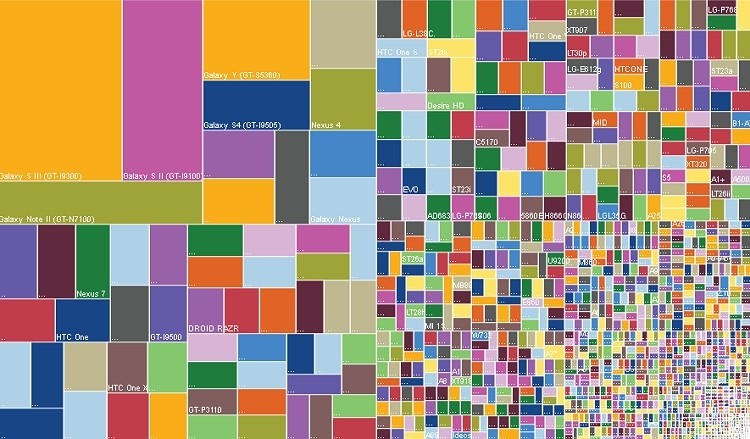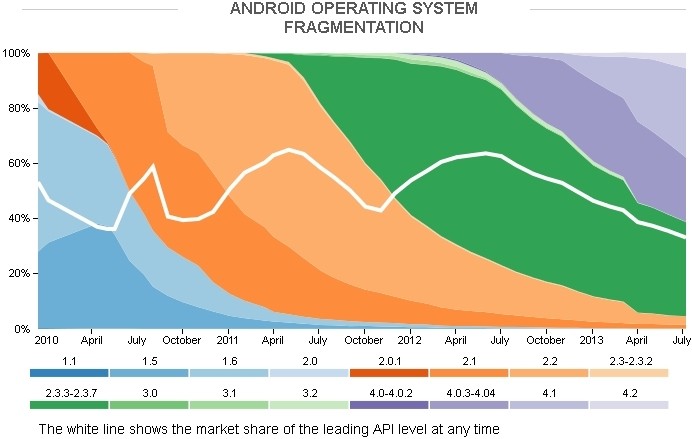
App maker OpenSignal has published a new report on Android fragmentation and despite what Google may say about the situation, it’s far from under control. By looking at more than half a million Android devices that downloaded the company’s Wi-Fi / cell signal finder app, they discovered a staggering 11,868 unique devices running Google’s mobile operating system – up from just 3,997 a year ago.
If you recall, Google’s most recent numbers show that Jelly Bean now accounts for 37.9 percent of all Android installations. This was significant as the newest version finally surpassed Gingerbread which now sits at 34.1 percent. Keep in mind that Gingerbread was released three years ago.

As “bad” as it may seem in visually, OpenSignal says the situation isn’t really a disaster. They point out that the availability of cheap Android phones (which rarely ship with the most recent version) means Android handsets have a much greater global reach than iOS devices.
That could all change in the near future as Apple is preparing to release a budget iPhone complete with a new naming convention: iPhone 5C. This could help Cupertino extend their reach into developing countries although it’s unclear whether or not the cheaper handset would run iOS 7 like its bigger brother.
What’s more, handset fragmentation translates into more choices, configurations and more competitive pricing for the consumer. That said, fragmentation can equally be looked at as providing choices to buyers. It’s a point that people often overlook when discussing Android fragmentation.
https://www.techspot.com/news/53428-android-hardware-and-software-fragmentation-visualized.html